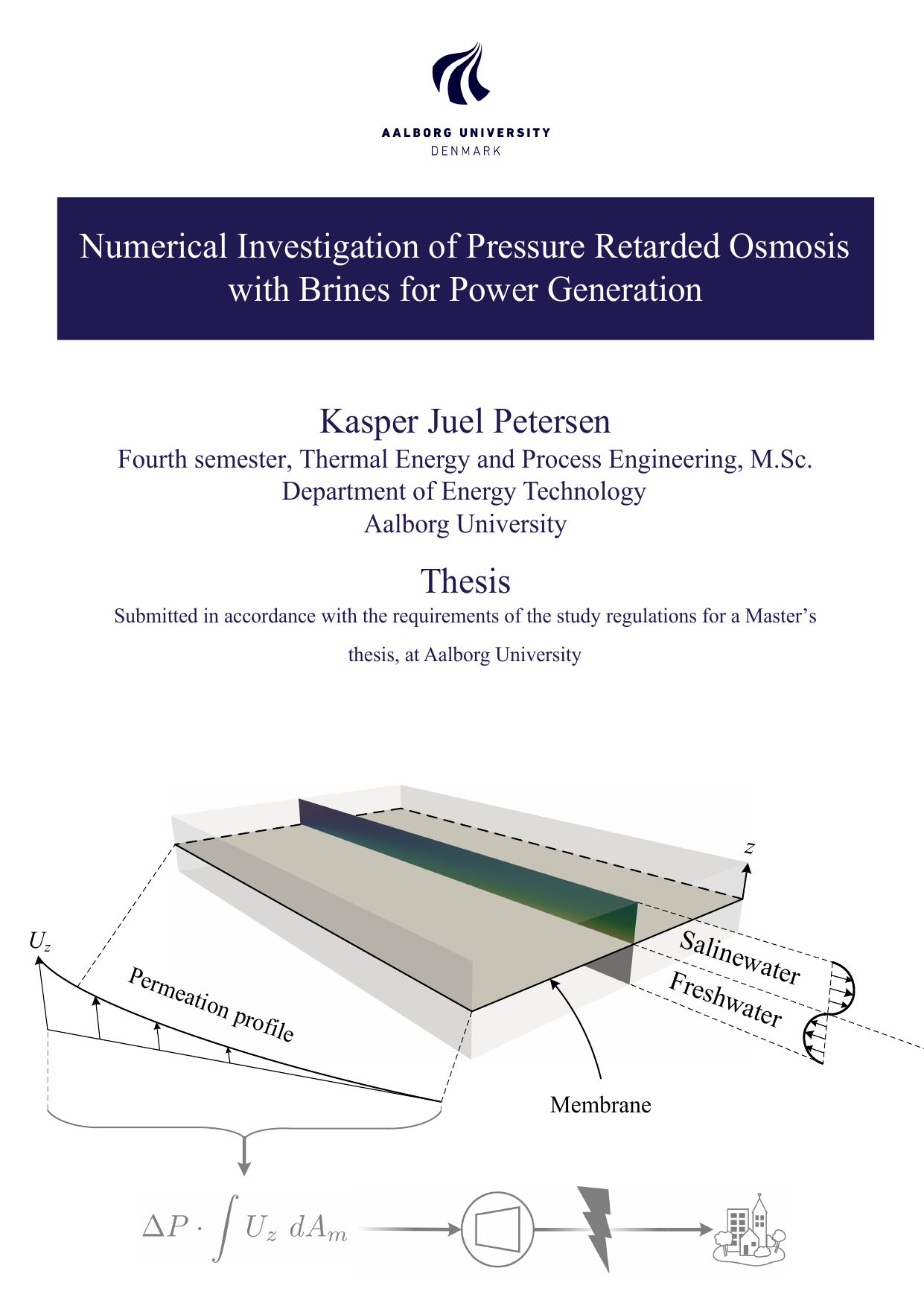
Numerical Investigation of Pressure Retarded Osmosis with Brines for Power Generation
Author
Term
4. term
Education
Publication year
2018
Submitted on
2018-05-31
Pages
83
Abstract
In 2016 the global electric power consumption was 15567 TWh. A recent estimate claims that saline reservoirs contain salinity gradient power equivalent to 647 GW which amounts to 5668 TWh or 36.4% of the global consumption. For exploiting this energy reserve pressure retarded osmosis (PRO) has shown promise. PRO is a technology which can partially extract the energy from salinity gradients by separating a saline fluid from a pure/low-salinity fluid with a semi-permeable membrane. By implementing this membrane the trans-membrane gradients are converted into flow energy that can be extracted as mechanical work. The research presented in this report focuses on geothermal brines and shows that trans-membrane temperature differences between the geothermal and the low-salininty water similarly can be converted into mechanical work. Subsequently a phenomenological membrane model that can predict permeation rates based on the gradients is formulated and coupled with a computational fluid dynamics framework. The model can predict the effects of the important degradative phenomena of internal and external concentration polarization in terms of an energy flux loss. Performed simulations show that even a low solute mass fraction in the low-salinity stream of 1.39% yields an energy loss of 47%. Furthermore, it is concluded that trans-membrane gradients in temperature are not negligible and that the permeation rate exhibits a non-linear dependence on these. The model is the first to represent the effects of temperature gradients and the research has formed a basis for procuring a comprehensive framework which can predict membrane performance considering all fundamental driving forces. This will prove valuable for advancing the commercial implementation of the technology.
Keywords
Documents
